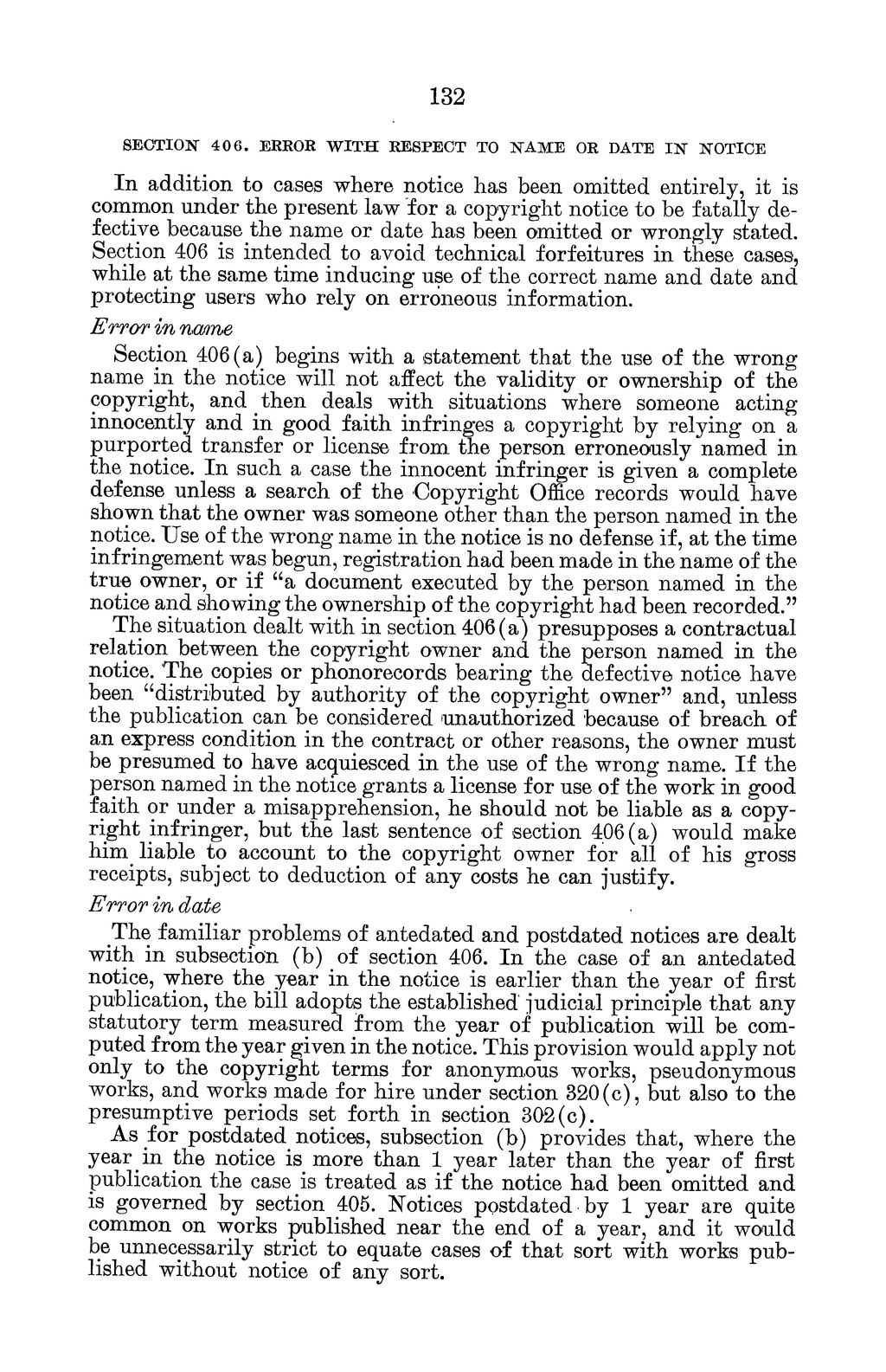132
SECTION 406. ERROR WITH RESPECT TO NAME OR DATE IN NOTICE
In addition to cases where notice has been omitted entirely, it is common under the present law for a copyright notice to be fatally defective because the name or date has been omitted or wrongly stated. Section 406 is intended to avoid technical forfeitures in these cases, while at the same time inducing use of the correct name and date and protecting users who rely on erroneous information.
Error in name
Section 406(a) begins with a statement that the use of the wrong name in the notice will not affect the validity or ownership of the copyright, and then deals with situations where someone acting innocently and in good faith infringes a copyright by relying on a purported transfer or license from the person erroneously named in the notice. In such a case the innocent infringer is given a complete defense unless a search of the Copyright Office records would have shown that the owner was someone other than the person named in the notice. Use of the wrong name in the notice is no defense if, at the time infringement was begun, registration had been made in the name of the true owner, or if “a document executed by the person named in the notice and showing the ownership of the copyright had been recorded.”
The situation dealt with in section 406(a) presupposes a contractual relation between the copyright owner and the person named in the notice. The copies or phonorecords bearing the defective notice have been “distributed by authority of the copyright owner” and, unless the publication can be considered unauthorized because of breach of an express condition in the contract or other reasons, the owner must be presumed to have acquiesced in the use of the wrong name. If the person named in the notice grants a license for use of the work in good faith or under a misapprehension, he should not be liable as a copyright infringer, but the last sentence of section 406(a) would make him liable to account to the copyright owner for all of his gross receipts, subject to deduction of any costs he can justify.
Error in date
The familiar problems of antedated and postdated notices are dealt with in subsection (b) of section 406. In the case of an antedated notice, where the year in the notice is earlier than the year of first publication, the bill adopts the established judicial principle that any statutory term measured from the year of publication will be computed from the year given in the notice. This provision would apply not only to the copyright terms for anonymous works, pseudonymous works, and works made for hire under section 320(c), but also to the presumptive periods set forth in section 302(c).
As for postdated notices, subsection (b) provides that, where the year in the notice is more than 1 year later than the year of first publication the case is treated as if the notice had been omitted and is governed by section 405. Notices postdated-by 1 year are quite common on works published near the end of a year, and it would be unnecessarily strict to equate cases of that sort with works published without notice of any sort.
